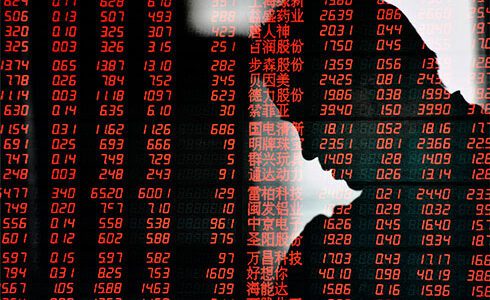
Stock indices of the largest countries in the Asia-Pacific region are mainly falling during trading on Wednesday following the decline in the US stock market, as well as due to weak statistical data from China.
The Purchasing Managers’ Index (PMI) for China’s manufacturing industry rose to 49.4 in August from 49 in the previous month, the country’s National Bureau of Statistics said.
A PMI value above 50 points indicates an increase in activity in the sector, below – its weakening. The indicator is below this level for the second month. Meanwhile, analysts had expected a less significant increase on average – to 49.2 points, according to the results of polls by The Wall Street Journal and Trading Economics.
PMI services and construction fell this month to 52.6 points from 53.8 points in July. Consolidated PMI fell to 51.7 points from 52.5 points.
China’s Shanghai Composite index fell 0.2% by 8:43 qoq, while Hong Kong’s Hang Seng added 0.5%.
Leading gainers on the Hong Kong Stock Exchange include shares of restaurant chain owner Haidilao International Holding Ltd. (+6.6%), game developer Netease Inc. (+3.9%), Internet company Meituan (+4.2%), sporting goods manufacturer Li Ning Co. (+4%).
Meanwhile, shares of automotive companies BYD (-7.5%) and Geely (-1.2%), oil PetroChina (-1.3%) fell in price.
Country Garden Holdings Co. share price fell by 4.8%. China’s largest real estate developer by sales in the first half of the year reduced its net profit by 96%, which was the largest decline since the company’s entry into the Hong Kong stock exchange in 2007.
The Japanese Nikkei 225 fell 0.5% by 8:38 a.m.
Oil company Inpex is down 3.5%, metals producers Pacific Metals Co. and Japan Steel Works – respectively by 2.3% and 2.4%.
In addition, shares of investment and technology company Softbank Group (-0.3%), consumer electronics manufacturer Sony (-1.9%), Asia’s largest clothing retailer Fast Retailing (-0.9%) are depreciating.
Industrial production in Japan in July decreased by 1.8% compared to the same month last year, according to preliminary data. The indicator showed a decline for the fifth month in a row.
The number of homes started in the country last month fell 5.4% year on year. The index has been declining for the third month. Analysts had expected a 4.1% contraction.
Meanwhile, Japan’s consumer confidence index rose to a three-month high in August at 32.5 points. In July, the indicator was at a minimum for 18 months – 30.2 points. The average forecast of experts assumed a rise of only 31 points.
Retail sales in the country in July increased by 2.4% compared to the same month last year. Thus, they rose for the fifth month in a row. Analysts, on average, expected a less significant increase of 1.9%, according to Trading Economics.
The South Korean index Kospi rose by 0.7% by 8:36 a.m.
Shares of one of the world’s largest manufacturers of chips and consumer electronics Samsung Electronics Co. rose in price by 1.4%, automaker Hyundai Motor – by 0.3%.
The Australian S&P/ASX 200 fell 0.3%.
The market value of the world’s largest mining companies BHP and Rio Tinto fell by 2.8% and 0.9%, respectively.